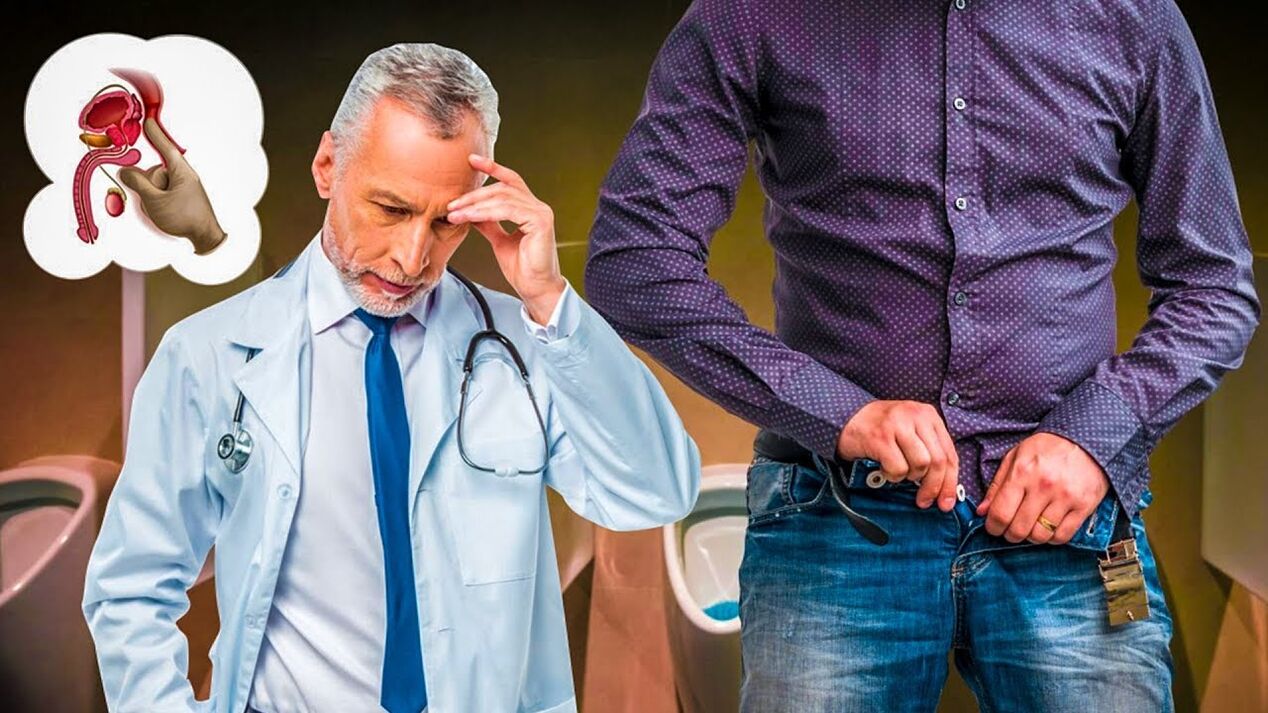The prostate (prostate) is an important part of the male reproductive system: it creates a secret that provides the motor activity and survival of sperm. The secret contains enzymes, immunoglobulins, citric acid, vitamins, zinc ions. If prostate activity is violated, the male body's sexual function will be reduced. The most common prostate disease is its inflammation - prostatitis. Usually, he comes into contact with him from the age of 20 to 50. The bigger the man, the higher the risk of the incidence. Prostatitis occurs in an acute or chronic form and is often difficult to diagnose and can lead to prostate dysfunction. The most serious consequences of prostatitis are infertility and prostate cancer.

About half of the ability men get sick from chronic prostatitis. Modern medicine is very active in the treatment of prostatitis. In fact, prostatitis has been successfully treated - it is important to diagnose it as early as possible. Once the first signs of prostatitis appear, you must contact your urologist. In the early stages, outpatient treatment is possible, in advanced cases where patients are hospitalized. Both versions of the treatment process are one to two weeks after which the patient needs to take precautions to prevent new inflammation in the prostate. Frequency of recurrence of chronic prostatitis - more than 50%
Types of prostatitis
The following types of prostatitis are distinguished according to the causes and clinical conditions of the disease progression:
Acute prostatitis- Inflammation of severe leakage of the prostate, which is caused by bacterial infection in its tissues. Many bacteria are part of the normal bacterial flora of the human body and are constantly present in the intestine and skin. However, current states may lead to the development of acute inflammatory processes when they enter tissues due to non-compliance with basic hygiene rules and other reasons. Acute prostatitis is extremely rare. Treatment should be performed in the hospital.
Chronic bacterial prostatitis- is one-third of all cases of prostatitis. This form of prostatitis is dangerous and even without treatment, the signs of pain can disappear spontaneously. But that doesn't mean recovery - after a while, it will occur, and it will be done more painfully each time. If you don't do anything over and over again, there's a risk of stone deposition in the prostate, bladder inflammation and other serious complications.
Chronic prostatitis/chronic pelvic pain syndrome. A difficult-to-diagnose form of prostatitis is caused by persistent pain in the pelvic area for more than three months. Along the way, neurological diseases and psychological and emotional disorders can be observed. Diagnosis is performed by exclusion and analysis may not show signs of inflammation.
Asymptomatic chronic prostatitis. It is asymptomatic and can be revealed based on the results of urine analysis, which suggests that the concentration of white blood cells and bacteria is high.
Chronic granuloma prostatitis. Usually, it is a side effect of medication for other diseases or prostate radiation. During this disease, the tissues of the prostate are gradually replaced by connective tissue and iron no longer works.

Symptoms of the disease
In men with different forms of prostatitis, common symptoms can be distinguished. These include: It is difficult to urinate due to the compression of the leaf channel with an inflamed prostate. When urinating, pain and burn can be observed. Violating the erectile mechanism and weakening orgasm. Accelerate ejaculation. Reduce effectiveness. Mental depression, anxiety. For patients with prostatitis, the psychological mood of recovery is very important. Stress can also weaken the body and complicate the treatment, resulting in greater pressure. It is difficult for patients to get out of this closed circle, so they sometimes prescribe antidepressants with prostatitis.
Causes of prostatitis
The causes of prostatitis are very diverse, but are mainly related to neglect of his health: sexually transmitted infections; violations of blood circulation in the pelvic organs due to a sedentary lifestyle; prolonged restraint, interruption of sexual intercourse or artificial prolongation of sexual intercourse; impaired immunity; frequent hypothermia, which is the characteristic of extreme sports enthusiasts; stress; hormone imbalance; lack of vitamins and trace elements; non-compliance with personal hygiene rules.
complication
Prostatitis causes serious inconvenience to men: urination problems, reduced sexual desire, and impaired erectile function. If the patient does not receive adequate treatment in time, he can develop infertility with a 40% chance, because prostate iron will no longer be able to develop secrets in normal quantity and necessary quality. Self-exercise for prostatitis is unacceptable because it may cause the patient's condition and the aggravation of the disease. For example, incorrect provision of antibiotics can adversely affect the gut microbiota and significantly reduce immunity while not solving the prostate problem. Other drugs only mask the disease and its symptoms, exacerbating the condition. Therefore, it is necessary to diagnose and treat prostatitis with experienced experts.

prevention
Preventive measures to prevent prostatitis include: careful observation of personal hygiene; regular commanding sexual life; healthy physical exercise; diet containing sufficient protein, vitamins and trace elements; increase general immunity; abstinence from drinking and smoking; timely treatment of any infectious diseases; and reduce the overall level of daily stress. Due to the wide variety of prostatitis and the causes of its development, men should be cautious about their happiness and visit urologists at least twice a year. Forty years later, this is especially important.



















